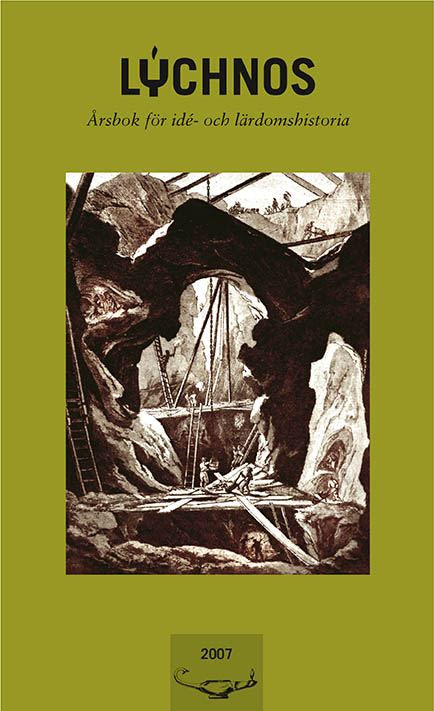Berta Funcke and ”modern pessimism”
On the use of pessimism as a decadence topos
Abstract
In the novel Berta Funcke (1885) by the young Swedish writer Stella Kleve (pseudonym for Mathilda Kruse), the protagonist expresses an interest in ”modern pessimism”. In this paper, I argue that that brief allusion to what was then a popular current in philosophy, should be interpreted as an attempt by Kleve to illustrate her protagonist's interest in sexual matters, and as an indication that her book was a decadent novel. The aim of the paper is to illustrate how certain connotations that the philosophy of pessimism had in the late nineteenth century could be used by writers in the decadent genre. These connotations allowed them to display their decadence simply by alluding to pessimism.
It is, I argue, three fields in particular that pessimism was associated with that made it useful as a decadent topos. firstly the vicinity of pessi- mism to melancholy, which meant that a literary character with an interest in pessimism would be taken to possess a certain exclusive intelligence in combination with a gloomy temperament. Secondly it was rendered useful by the fact that pessimism was generally associated with degeneration, which was supposed to be a great threat to modern Western society. The writers of the decadence tended to accept the accusations that their genre was an artistic manifestation of degeneration, and allusions to pessimism could be used to signal this. Thirdly the important role occupied by sexuality in the metaphysical systems of the pessimists made it useful to the decadents. This is particularly so, since the pessimists tend to associate the absence of a will to reproduction as a sign of superior intelligence.
Downloads
Published
Issue
Section
License
This work is licensed under a Creative Commons Attribution 4.0 International License. The copyright for the work published in Lychnos remains with the authors.


